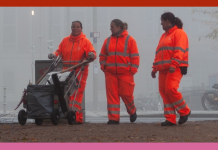Professor Dr Paul De Raeve, Secretary General of the European Federation of Nurses Associations, outlines the key policy actions necessary to mitigate the current nursing workforce crisis in the EU
The EU nursing workforce is a key concern for national policymakers and politicians as the performance of the European healthcare systems will negatively impact the quality and safety of direct patient care. Nurses are in firefighting mode with huge shortages that are having an increasing impact on healthcare accessibility. These include closing down the emergency room and merging hospital units because there are fewer nurses to cover shifts. But this is nothing new: we saw this in 2010 when the financial crisis made nurses redundant, and the COVID-19 pandemic made nurses heroes, but post COVID-19 more weakened than ever before. Proposed shifts in EU spending towards defence and innovation in 2024 exacerbate the situation, causing setbacks in healthcare goals.
We do not have to explore new care models; we have already experienced enough disruptions in the last decade. What we need is stability and a comfortable zone in which to operate. Harnessing medical and technological innovations to transform health systems is a popular idea, but frontline care is essential.
Political priorities for addressing the nursing workforce crisis
To address the current nursing workforce crisis and strengthen healthcare workforce capacity, it’s important to focus on a short list of priorities. A long list of commitments and recommendations won’t solve the problem but will only exacerbate it.
Policymakers have worked for decades on forecasting and planning the workforce, with the result that nurses have been pulled away from the bedside and become nurse data collectors and analysts. Direct patient care went from 40% in the nineties to 25% in 2024. So, who is doing direct patient care?
Retaining and engaging health professionals are the buzzwords, but frontline nurses who have given their lives and time to direct patient care say enough is enough. If I do not leave now, even without any income, it will negatively impact my own health. Reactivating health professionals who have left the health sector is a huge challenge within the current working conditions, so EU institutions need to urgently use the recovery and resilience funds to support frontline staff. All EU Member States need nursing workforce support!
Realistic expectations for skill building
Working with patients and informal carers is the basis of people-centred care, but if resources are cut and healthcare systems depend on voluntary work, the security, quality and safety will be compromised. Would the army use volunteers as F16 fighters?
Harnessing collaboration to navigate the workforce crisis is only possible if the sectoral professions – nurses, doctors, midwives, dentists and pharmacists – form a strong alliance together with other professions like farmers, teachers, police and fire brigade, all professionals not taken seriously by politicians. They are called heroes, but when it comes to improving their working conditions and wages, their frontline work is taken for granted.
When a crisis emerges, they always need nurses; politicians and policymakers always count on nurses. But when the crisis is over, they forget nurses and go back to ‘business as usual.’ Then, what does social dialogue mean? Co-design and co-decision: what does this imply? There is a library full of theories and studies, but nothing has been implemented. The ‘medical desert’ stays as it is, and the chaos worsens, but we need more data to measure frontline performance!
Supporting nurses in the 2024 European elections
My hope stays with the follow-up of the Belgium EU Presidency, the June EPSCO council conclusions, a potential EU Health Workforce Strategy designed with frontline and the following EU Presidencies of Hungary, Poland, Denmark, and Cyprus. I hope by 2026, we can make some frontline progress for the EU health workforce, and in particular, the nursing workforce, which is the hardest hit by the COVID-19 pandemic.
But we cannot ignore the June European elections. Some famous faces will be back; they have the political machinery behind them geared up. But most will be new to the influential bubble in Brussels. However, three million frontline nurses will cast, hopefully, their vote, taking into account the terrible situation frontline nurses find themselves in in 2024. That is why EFN is asking for four key issues to be addressed by politicians when elected. However, we could ask for over 150 problems to be solved; let’s focus on and set priorities so we move from ‘talk to actions,’ we move from ‘methodologies to implementation/exploitation.’ EFN members, representing three million nurses, endorsed four priorities:
- Invest in nursing education, lifelong learning, and continuous professional development. The EU institutions and national governments need to ensure that Directive 2013/55/EU keeps on setting the requirement of a highly qualified nurse education. This Directive has improved the position of nurses in society in the last five decades, especially taking EU enlargement into account.
- Ensure optimal wages, fair working conditions, and health workforce capacity building. Nurses’ salaries are central to delivering the European Pillar of Social Rights. Protect nurses’ right to take industrial action. Social dialogue and collective bargaining are part of the EU values and principles.
- Safe staffing levels as part of each national workforce strategy. Securing a sustainable and safe staffing level for the nursing workforce must be a priority for the EU Institutions. All Member States must take a long-term approach to workforce capacity building, not just planning and forecasting. Registered nurses are an integral and integrated element of the current and future health workforce.
- Stop violence against nurses: EU Institutions need to ensure a zero-tolerance approach to violence against nurses and allied healthcare professionals and workers to eradicate all forms of abuse and strengthen the responsibility of the employers to provide safe working environments at the EU level. The wellbeing of frontline nurses is key to keeping them in the profession.
To conclude, as a committed nurse, you can make a difference, move mountains, and stay motivated and energetic. You often combine different roles to empower others and make others feel better. Nurses selflessly dedicate themselves to empower patients/citizens.
But if the EU starts ignoring health, if health moves away from the political EU priorities, ignoring nurses’ impact in society, and putting the army and defence first, health systems, public and private, will collapse, with or without performance measurements and endless forecasts. Safety and quality will become nice things to have, but no longer part of the founding values of EU citizens. We’ve had enough disruption; now it’s the moment to strive for stability so we have at least the breathing space to prepare ourselves for the next health crisis in the EU and Europe.











